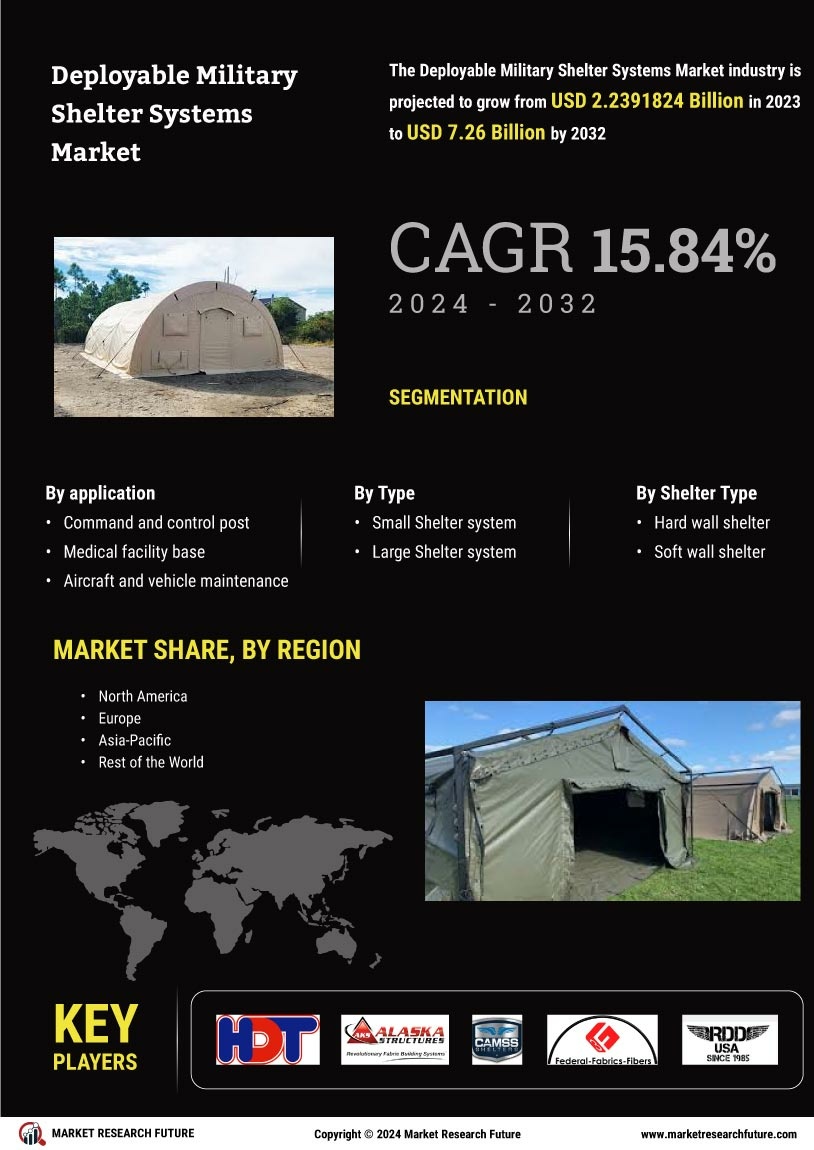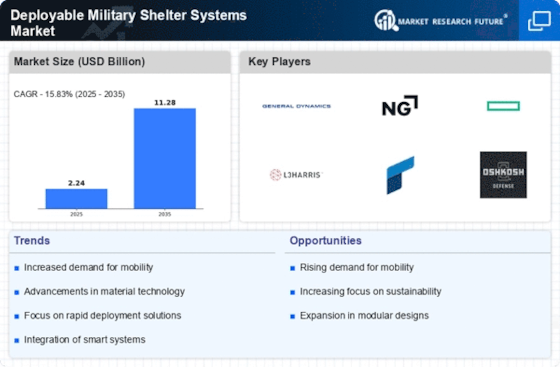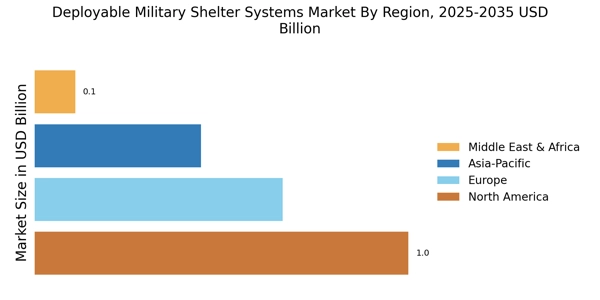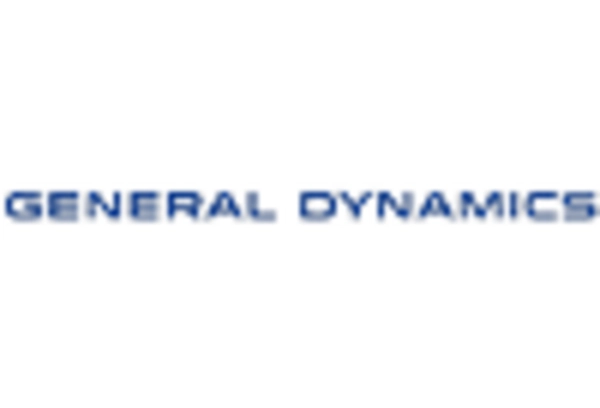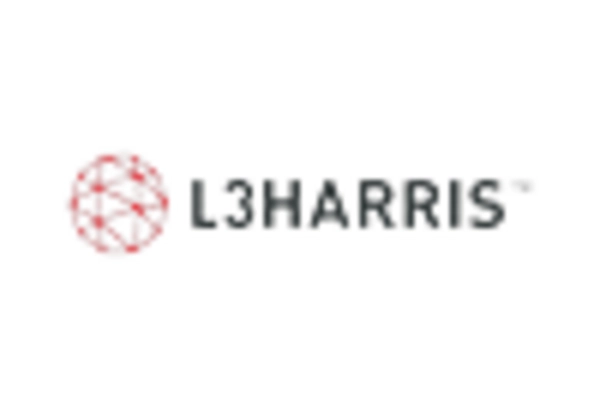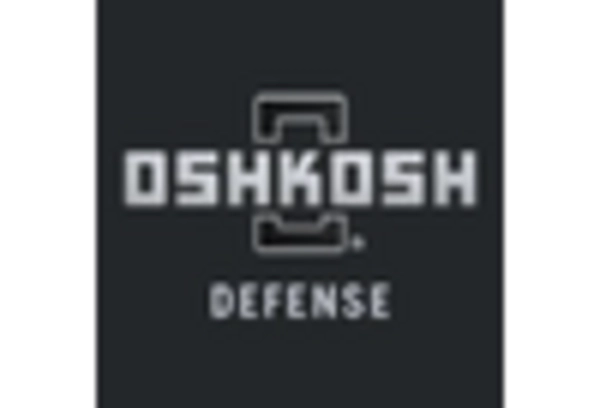Geopolitical Tensions
Geopolitical tensions across various regions are driving the demand for deployable military shelter systems Market. As nations face increasing security challenges, military forces are compelled to enhance their readiness and response capabilities. This has led to a heightened focus on rapid deployment solutions, including advanced shelter systems that can be set up quickly in conflict zones. The market is expected to expand as countries invest in modernizing their military infrastructure, with projections indicating a potential increase in spending on deployable shelters by 20% over the next five years. Consequently, the Deployable Military Shelter Systems Market is likely to benefit from these heightened defense expenditures.
Focus on Sustainability
Sustainability is emerging as a pivotal driver within the Deployable Military Shelter Systems Market. Military organizations are increasingly prioritizing eco-friendly materials and energy-efficient designs in their shelter systems. This shift not only aligns with global sustainability goals but also reduces operational costs over time. The market is witnessing a growing trend towards the use of renewable energy sources, such as solar panels, integrated into shelter designs. Reports suggest that the adoption of sustainable practices could lead to a 15% reduction in lifecycle costs for military shelters. As environmental considerations become more critical, the Deployable Military Shelter Systems Market is likely to adapt, ensuring that sustainability remains at the forefront of development.
Emerging Defense Budgets
Emerging defense budgets in various nations are significantly influencing the Deployable Military Shelter Systems Market. Countries are increasingly recognizing the need to modernize their military capabilities, leading to increased allocations for defense spending. This trend is particularly evident in regions where military modernization is a priority, with some nations reporting budget increases of up to 10% annually. As defense budgets expand, the demand for advanced deployable shelter systems is expected to rise, as these shelters provide essential support for troops in the field. The Deployable Military Shelter Systems Market is poised to capitalize on this trend, as military forces seek to enhance their operational effectiveness through improved shelter solutions.
Technological Advancements
The Deployable Military Shelter Systems Market is experiencing a surge in technological advancements that enhance the functionality and efficiency of these systems. Innovations such as modular designs, lightweight materials, and integrated smart technologies are becoming increasingly prevalent. For instance, the incorporation of climate control systems and energy-efficient solutions is likely to improve the operational capabilities of shelters in diverse environments. Furthermore, the market is projected to grow at a compound annual growth rate of approximately 5.2% from 2025 to 2030, driven by these advancements. As military operations become more complex, the demand for shelters that can adapt to various scenarios is expected to rise, indicating a robust future for the Deployable Military Shelter Systems Market.
Increased Demand for Versatility
The need for versatile shelter solutions is a significant driver in the Deployable Military Shelter Systems Market. Military operations often require rapid deployment in various terrains and climates, necessitating shelters that can be easily adapted for different uses. This versatility includes configurations for command centers, medical facilities, and living quarters. The market is projected to see a notable increase in demand for multi-functional shelters, with estimates suggesting a growth rate of around 6% annually. As military forces seek to enhance operational readiness and adaptability, the Deployable Military Shelter Systems Market is likely to respond by offering more customizable and flexible solutions.
